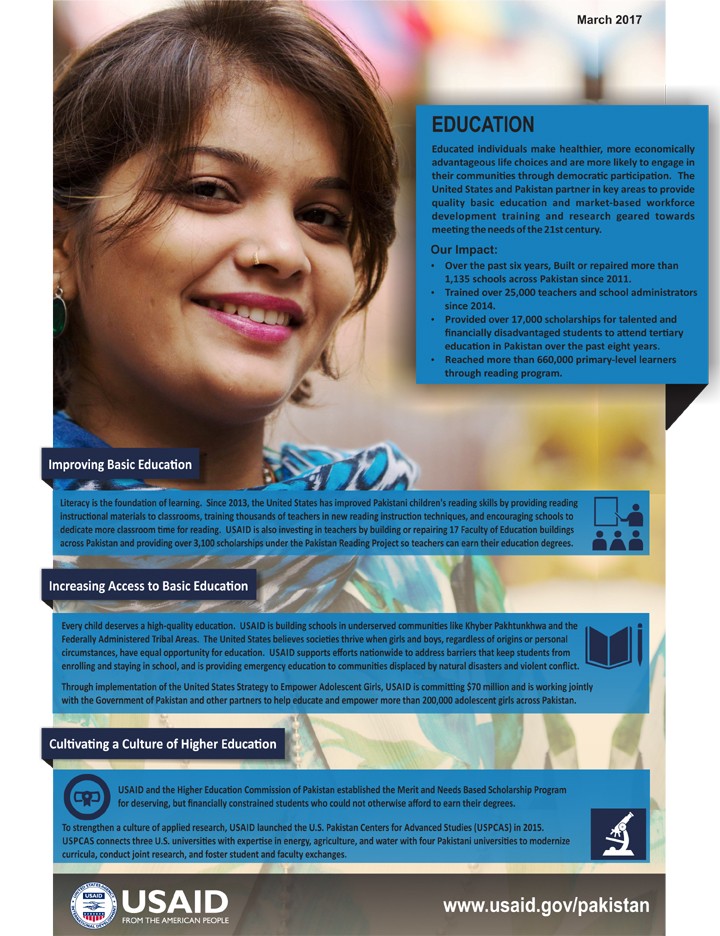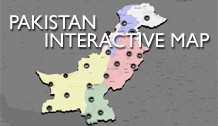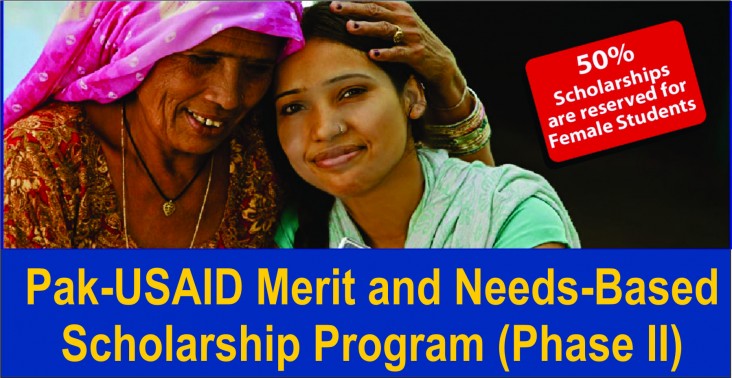Educated individuals make healthier, more economically advantageous life choices and are more likely to engage in their communities through democratic participation. The United States and Pakistan partner in key areas to provide quality basic education and market-based workforce development training and research geared towards meeting the needs of the 21st century.
OUR IMPACT
- Built or repaired more than 1,135 schools across Pakistan since 2011.
- Trained over 25,000 teachers and school administrators since 2014.
- Provided over 17,000 scholarships for talented and financially disadvantaged students to attend tertiary education in Pakistan over the past eight years.
- Reached more than 660,000 primary-level learners reached through reading program.
Improving Basic Education
Literacy is the foundation of learning. Since 2013, the United States has improved Pakistani children’s reading skills by providing reading instructional materials to classrooms, training thousands of teachers in new reading instruction techniques, and encouraging schools to dedicate more classroom time for reading.
USAID is also investing in teachers by building or repairing 17 Faculty of Education buildings across Pakistan, and has provided over 3,100 scholarships under the Pakistan Reading Project so teachers can earn their education degrees.
Increasing Access to Basic Education
Cultivating a Culture of Higher Education
News

Education Sector Fact Sheet [PDF, 2.8MB]










Comment
Make a general inquiry or suggest an improvement.